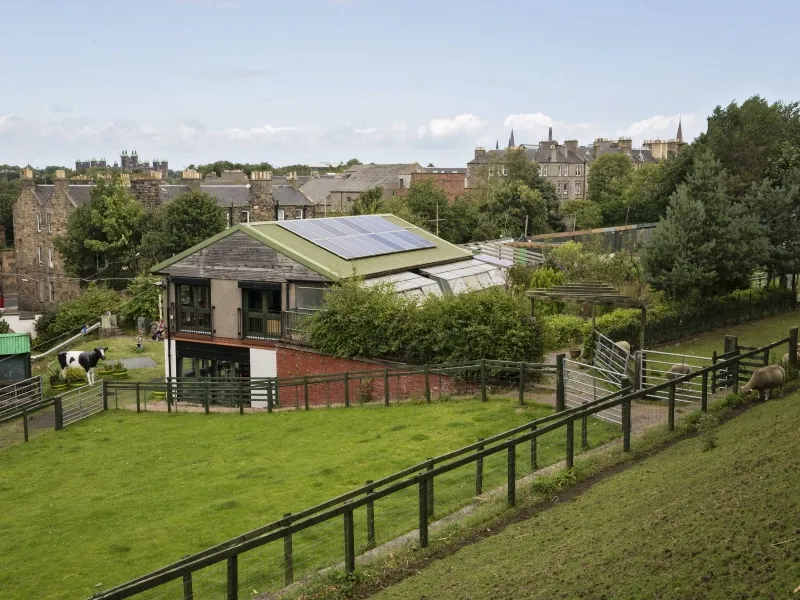A Stroll Through History
Imagine strolling through a bustling city, the air filled with traffic sounds and the chatter of city life. Suddenly, you turn a corner and find yourself in a tranquil oasis where the scent of fresh hay and the bleating of sheep replace the urban noise. This isn’t a countryside escape but a hidden gem in the heart of Edinburgh: Gorgie Farm. Established in 1982, this urban farm has become a beloved community space, blending farm life’s rustic charm with the city’s vibrant spirit. In this article, we explore the history, significance, and contributions of Gorgie Farm, bolstered by statistics and data that highlight its impact.
The Origins and Evolution of Gorgie Farm
Gorgie Farm was founded to respond to the community’s need for a green space offering educational opportunities and a connection to nature. Over the years, the farm has grown from a small community project into a vital educational and recreational resource. The farm spans 1.5 acres and houses various animals, including goats, sheep, cows, and poultry. This diversity offers visitors a hands-on experience with farm animals, an increasingly rare opportunity in urban environments.
Community Engagement and Education
One of Gorgie Farm’s core missions is to educate the public, particularly children, about agriculture, animal husbandry, and sustainability. Annually, the farm attracts over 200,000 visitors, including school groups, families, and tourists. The farm provides educational workshops and programs covering animal care, gardening, and environmental conservation. These initiatives aim to instill a sense of responsibility and appreciation for nature in the younger generation.
According to a 2023 survey by the Edinburgh Council, 85% of visitors to Gorgie Farm reported that their understanding of agriculture and sustainability increased significantly after their visit. This statistic underscores the farm’s effectiveness in promoting environmental education.
Economic and Social Contributions
Beyond education, Gorgie Farm supports local economies and social inclusion. The farm employs around 20 staff members and offers volunteering opportunities to over 100 individuals annually. This includes student work experience placements and programs for individuals with learning disabilities. These programs provide valuable skills and contribute to the overall well-being of participants.
Gorgie Farm contributes to local food security through garden projects, where volunteers grow vegetables and herbs. These are often sold in the farm’s shop or donated to local food banks. In 2022, the farm produced over 500 kilograms of fresh produce, benefiting more than 300 local families.
Challenges and Future Prospects
Despite its many successes, Gorgie Farm faces ongoing challenges, particularly in funding and sustainability. Like many community projects, the farm relies heavily on donations, grants, and revenue from its on-site café and shop. In recent years, the farm has been exploring new revenue streams, such as hosting private events and developing educational materials for sale.
In 2023, Gorgie Farm launched a crowdfunding campaign to raise £50,000 for much-needed renovations and expansion of its educational facilities. The campaign successfully met its target, reflecting the strong community support and the farm’s importance to the local area.
Conclusion: A Farm with a Heart
Gorgie Farm stands as a testament to the power of community-driven initiatives. It provides a space for education and recreation and a model for sustainability and social inclusion. The need for such green spaces becomes even more critical as urban areas grow. Gorgie Farm offers a respite from the hustle and bustle of city life and fosters a deeper connection to nature and community.
In the words of a regular visitor, “Gorgie Farm is more than just a farm; it’s a place where people from all walks of life come together, learn, and grow. It’s a little piece of the countryside in the city, and we’re all the better for it.”




